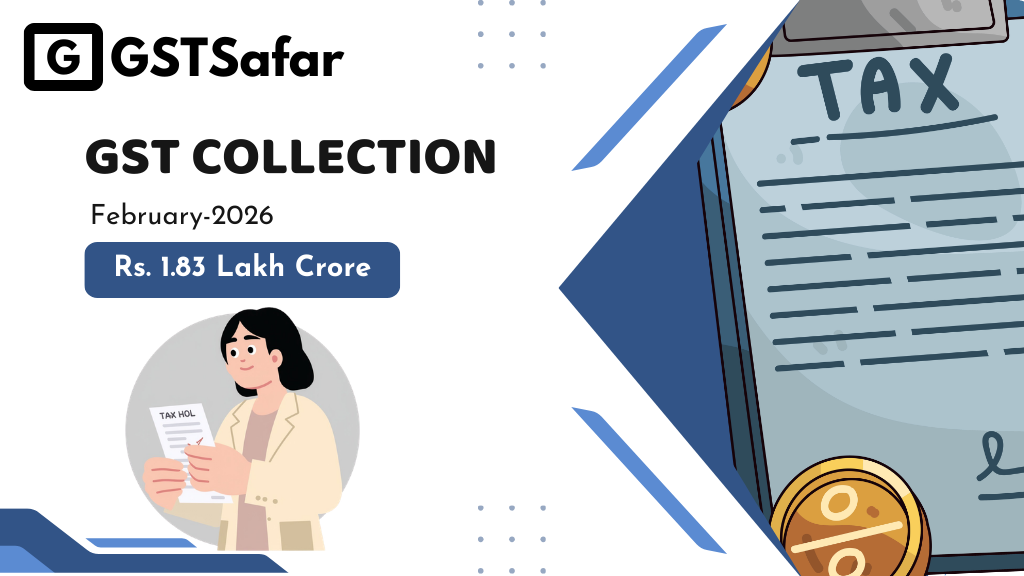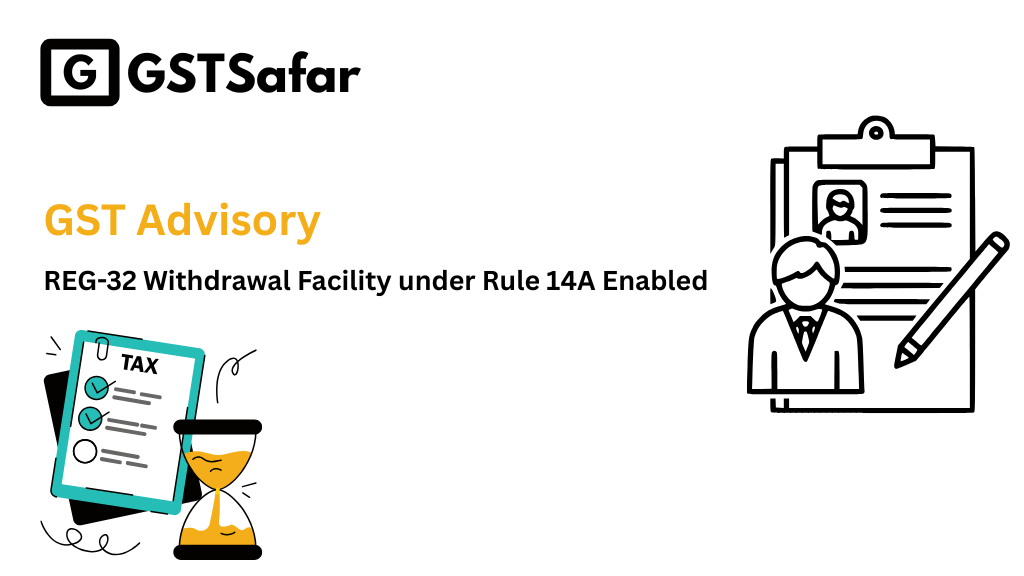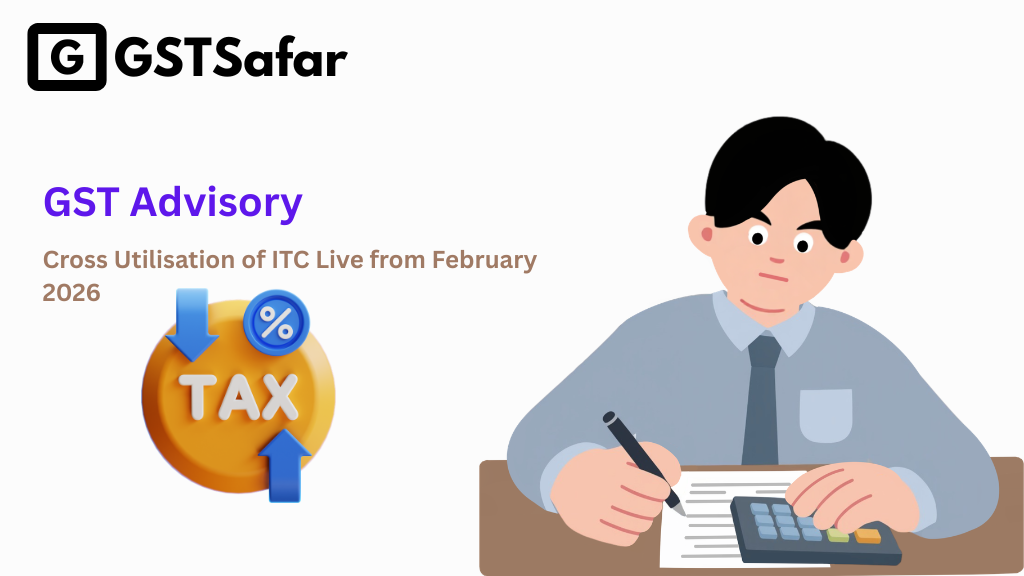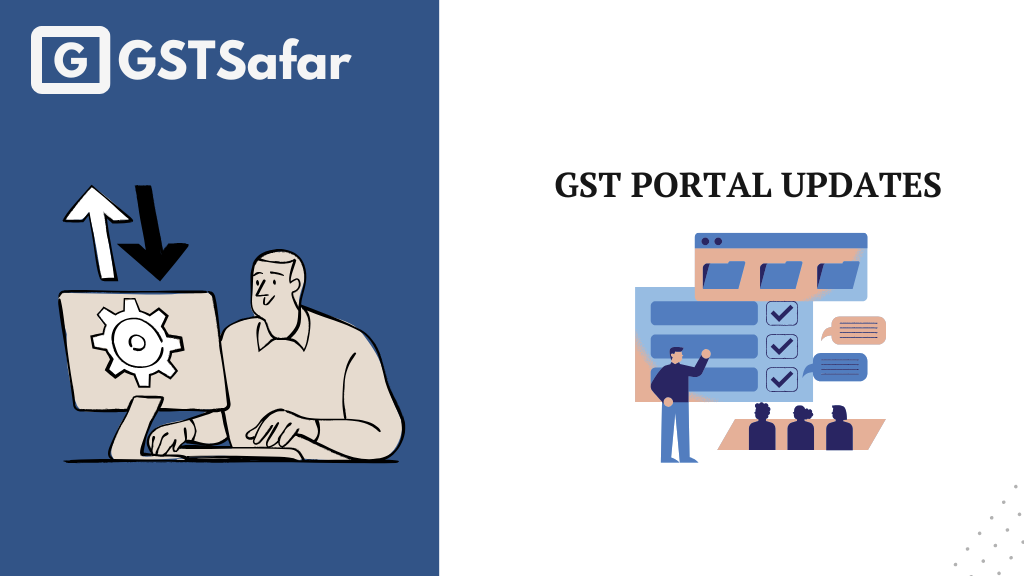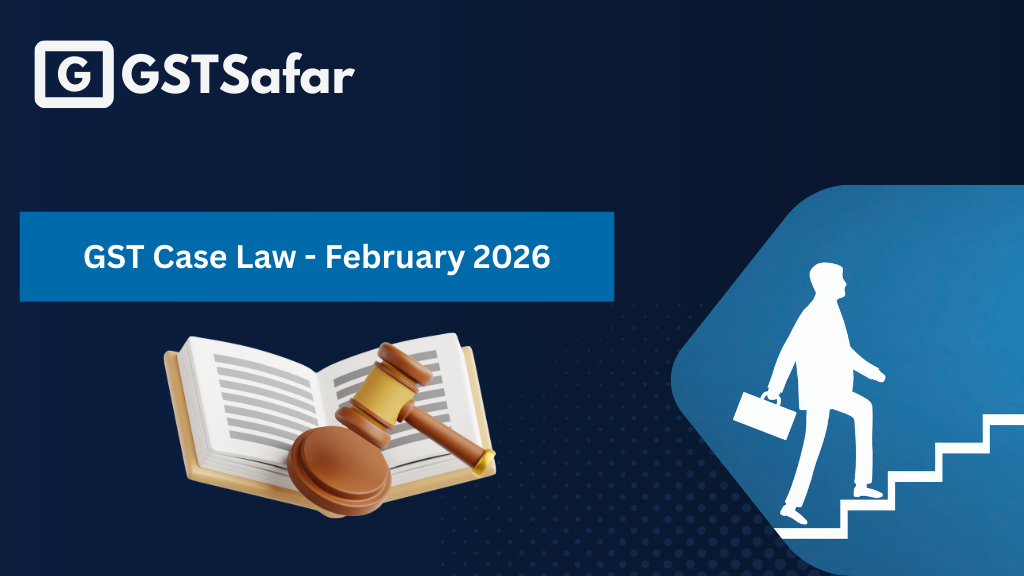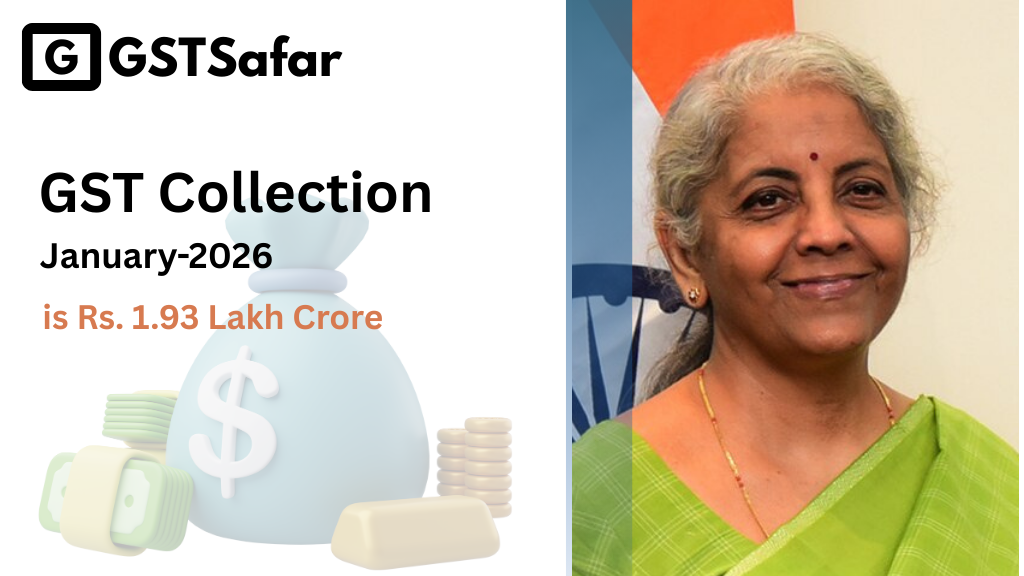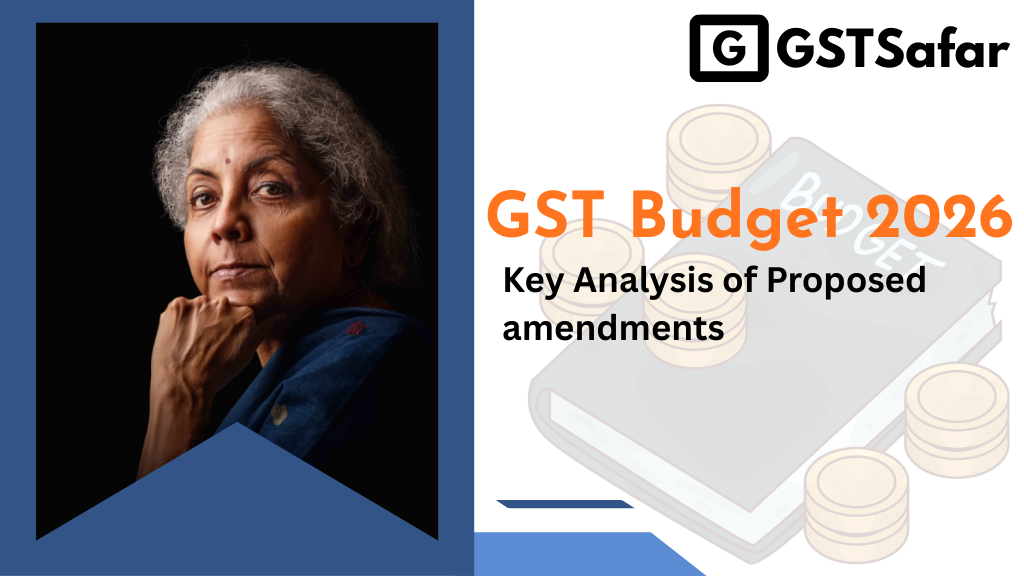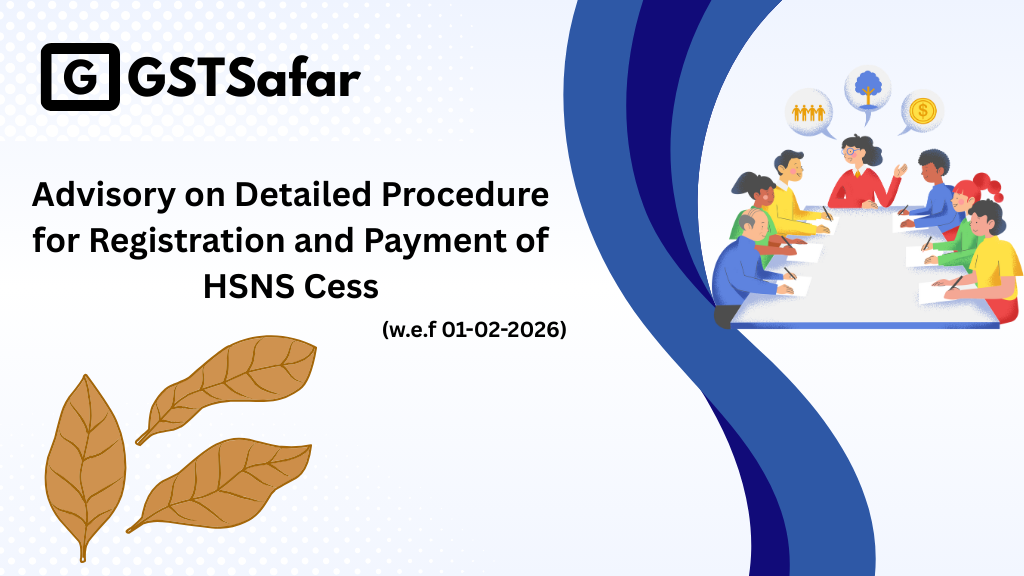Table of Contents
ToggleGST Case Laws July 2025
The goal of this article is to cover all recent GST case laws July 2025. All latest high court judgments on gst and all the latest Supreme Court judgments on gst issued in July 2025 have been covered in this article. All the latest GST case laws of July 2025 in this article have been classified by name, date, judge, counsel, GST concept, GST section, etc. In addition, a PDF of the GST case law is provided with the case law so that the user can download it for further study.
GST case law on Limitation for issuance of SCN under Section 73 & Adequate Opportunity of Personal Hearing
Delhi High Court says SCN issued on 30.11.2024 was within limitation and adequate opportunity of hearing was granted; writ petition not maintainable as appellate remedy available.
| Delhi High Court Judgement 2025 |
| Name of case: Tata Play Ltd. V/s Sales Tax Officer Class II/AVATO |
| Date of Judgment: 29-07-2025 |
| Appeal No: W.P.(C) 4781/2025 & CM APPL. 22012/2025 |
| Judges: Justice Prathiba M. Singh, Justice Rajneesh Kumar Gupta |
| Counsel Name: Ms. Vaishali Gupta, Panel Counsel (Civil) GNCTD for Respondent |
Fact of the Case: Tata Play Ltd., a registered DTH service provider under CGST, challenged an SCN dated 30.11.2024 and consequential demand order dated 28.02.2025 issued by the Sales Tax Officer, AVATO, for FY 2020–21 alleging excess ITC availment. The demand comprised ₹5.63 crore tax, ₹4.22 crore interest, and ₹56.35 lakh penalty. The petitioner contended the SCN was issued beyond the limitation prescribed under Section 73 CGST Act and that adequate opportunity of personal hearing under Section 75(4) was denied. It relied on AP High Court’s decision in M/s Cotton Corporation of India and Supreme Court’s ruling in Himachal Techno Engineers. The litigation arose on two grounds — (i) whether the SCN was time-barred, and (ii) whether principles of natural justice were violated due to inadequate hearing opportunities. The petitioner sought quashing of both SCN and order. |
Held by court : The Court held that under Sections 73(2) and 73(10) of CGST Act, “three months” means three British calendar months. Counting from 28.02.2025, the SCN issued on 30.11.2024 was within limitation. It disagreed with AP High Court’s Cotton Corporation ruling and applied Himachal Techno Engineers for interpretation. On personal hearing, the Court found that two hearing dates were fixed (17.01.2025 and 27.01.2025), with the first adjourned at petitioner’s request and the second missed without seeking adjournment. Section 75(5) limits, not mandates, maximum three adjournments. Adequate opportunity was given; hence, no violation of natural justice occurred. Writ petition was dismissed with liberty to file appeal under Section 107 by 31.08.2025. |
| In favor of : Revenue |
| Topic of GST : Limitation & Natural Justice in Adjudication |
| Section of GST: Section 73(2), 73(10), 75(4), 75(5) of CGST Act, 2017, Rule 80(1)(A) of CGST Rules |
Download PDF of Delhi High Court Judgement of Tata Play Ltd
GST case law on Challenge to Cancellation Due to Non-Service by Post
Kerala High court upheld the cancellation and refused to interfere with the order.
| Kerala High Court Judgement 2025 |
| Name of case: Latheesh Chovvattapadinhare Kuthirummal vs. Central Board of Indirect Taxes and Customs |
| Date of Judgment: 01-07-2025 |
| Appeal No: WP (C) NO. 16114 OF 2025 |
| Judges: ZIYAD RAHMAN A.A. , J. |
| Counsel Name: E.C.Ahamed Fazil |
Fact of the Case: In the given case, the issue pertains to the cancellation of GST registration due to non-compliance by the assessee. A notice was duly issued to the assessee, directing them to file the pending returns and appear before the concerned officer. However, the assessee failed to comply with the notice and did not file returns for a period exceeding six months. As a result, the proper officer proceeded with the cancellation of the assessee’s GST registration in accordance with the law. The assessee later challenged the cancellation on the ground that the notice and the subsequent cancellation order were not served to them by post at their registered address. Therefore, they claimed to have had no knowledge of the proceedings initiated against them. However, mere non-service by post does not automatically invalidate the service of notice if the same was duly uploaded on the GST portal or served through other valid modes as prescribed under the law. The responsibility also lies on the assessee to regularly check the portal and respond to communications from the department. Non-filing of returns for an extended period and failure to appear despite the notice being issued clearly indicate willful default, justifying the cancellation of registration. |
Held by court : In this case, the assessee challenged the cancellation of registration on the ground that the notice and cancellation order were not physically served upon them by post. However, the court held that such a contention was not sustainable under the law. As per Section 169(d) of the CGST Act, 2017, service of any decision, notice, order, or communication through making it available on the common portal is a legally valid mode of service. The Act does not mandate physical delivery by post as the only means of service. Uploading the notice on the GST web portal is considered sufficient compliance with the statutory requirement of service. Therefore, the fact that the notice or order was not served by post does not render the proceedings invalid. The assJessee is expected to regularly check the GST portal for any notices or communications from the department. Since the notices and cancellation order were made available on the common portal in accordance with the prescribed mode under Section 169(d), the court concluded that there was no procedural lapse. |
| In favor of : Revenue |
| Topic of GST : Registration |
| Section of GST: Section 29 with section 169 of CGST Act, 2017 |
Download PDF of Kerala High Court judgement of Latheesh Chovvattapadinhare
GST Case law on Reclassification of Demand from Section 74 to Section 73 in Absence of Suppression or Fraud
Karnataka High Court directed that the impugned order be treated as one passed under Section 73,
| Karnataka High Court Judgement 2025 |
| Name of case: Basavaraj V. Sajjan vs. Deputy Director, Additional Director General, Directorate General of GST, Intelligence |
| Date of Judgment: 01-07-2025 |
| Appeal No: WP NO.200889 OF 2025 (T-RES) |
| Judges: M.I. Arun, J. |
| Counsel Name: Devi Prasad Ganpatrao and Prakash D |
Fact of the Case: In the present case, the petitioner, a government contractor engaged in providing works contract services, was served with a demand under Section 74 of the CGST Act, 2017, which deals with tax dues involving fraud, willful misstatement, or suppression of facts. The demand pertained to the Financial Year 2018–19, during which the petitioner failed to pay the differential amount of GST on certain contract receipts. The petitioner contended that the delay in GST payment occurred because the corresponding amount, including the tax component, was not received from the Public Works Department (PWD). However, the tax authorities rejected this defense, stating that non-receipt of payment from the contractee (PWD) does not absolve the petitioner of the statutory liability to pay GST. It was observed that the obligation to remit tax to the government arises at the time of supply, irrespective of whether the payment from the client has been received. The authorities concluded that the petitioner had suppressed material facts and failed to discharge GST liability knowingly, and hence, the case attracted the provisions of Section 74, which imposes a higher penalty for fraud or suppression. Accordingly, the impugned order was passed, treating the matter as one involving intent to evade tax, thereby justifying the invocation of Section 74 rather than the general demand provision under Section 73. |
Held by court : In this case, while it was established that there was a short payment of GST by the petitioner in relation to the works contract services provided, the court, upon examining the peculiar facts and circumstances, found no element of fraud, willful misstatement, or suppression of facts on the part of the petitioner. The petitioner had explained that the non-payment of GST was due to non-receipt of corresponding payments from the Public Works Department (PWD), which although not a legally valid ground for non-payment, did not reflect any intention to evade tax. Given that the shortfall arose from financial constraints rather than deliberate concealment or misrepresentation, the court held that the case did not warrant proceedings under Section 74 of the CGST Act, which is specifically meant for cases involving fraud or suppression and attracts a heavier penalty. Instead, the case fell within the purview of Section 73, which deals with non-fraudulent short payment or non-payment of tax. Accordingly, the court directed that the impugned order be treated as one passed under Section 73, ensuring a fairer approach in line with the actual conduct and intent of the petitioner. |
| In favor of : Assessee |
| Topic of GST : Demand |
| Section of GST: Section 73 & 74 of CGST Act, 2017 |
Downlaod PDF of Karnataka High Court judgement of Sri Sunil SO Basavaraj
GST Case law on Condonation of Delay and Violation of Natural Justice
Madras High Court decided that the assessee should be given a fresh opportunity to respond to the tax demands.
| Madras High Court Judgement 2025 |
| Name of case: Indian Spices vs. State Tax Officer |
| Date of Judgment: 01-07-2025 |
| Appeal No: W.P.(MD) Nos.17853 and 17855 to 17858 of 2025 ,W.M.P.(MD) Nos.13661, 13662, 13663, 13665, 13666, 13667, 13672, 13673, 13674 and 13676 of 2025 |
| Judges: C. Saravanan, J. |
| Counsel Name: S. Karunkar |
Fact of the Case: In this case, the assessee faced a tax demand for the periods 2017-18 and 2019-20 to 2021-22, following an inspection at its premises. This inspection led to the issuance of notices and subsequent assessment orders by the tax authorities. The assessee, however, did not file appeals within the prescribed time limit under Section 107 of the CGST Act, which allows an appeal to be filed within 3 months (extendable by 1 additional month) from the date of the order. The assessee tried to file the appeals after a delay of 68 days beyond the maximum condonable period, which the Appellate Commissioner rejected, stating that the law does not permit condonation beyond the prescribed limit. The assessee then approached the High Court, arguing that it had strong documents and records to prove that the assessment orders were baseless. More importantly, the assessee claimed that there was a serious violation of the principles of natural justice, as it was not given any opportunity to submit documents or be heard before the orders were passed.In essence, while the delay was beyond the legal limit for appeal filing, the assessee sought relief on the grounds of fairness and lack of opportunity to present its case during the assessment. |
Held by court : In this case, after hearing both parties and reviewing the assessment orders, the High Court observed that the assessee had not been given a fair opportunity to present its case, which amounted to a violation of the principles of natural justice. To ensure justice, the Court decided that the assessee should be given a fresh opportunity to respond to the tax demands. However, to balance the interests of the Revenue, the Court directed that the assessee must deposit an additional 15% of the disputed tax amount, over and above the 10% already deposited at the time of filing the original appeals. Upon such deposit:
|
| In favor of : Assessee |
| Topic of GST : Appeal to appellate authority |
| Section of GST: Section 107 of CGST Act, 2017 |
Download PDF of Madras High Court Judgement on MS Indian Spices
GST Case law on Refund of Unutilized ITC for Zero-Rated Supplies under Rule 89
Bombay High court says the refund of unutilized ITC should have been allowed and calculated strictly in accordance with Rule 89,
| Bombay High Court Judgement 2025 |
| Name of case: Syngenta India Limited vs.Union of India |
| Date of Judgment: 08-07-2025 |
| Appeal No: WRIT PETITION NO. 664 OF 2024 |
| Judges: NIVEDITA P. MEHTA and BHARATI DANGRE, JJ. |
| Counsel Name: Prakash Shah, Hanumant D. Naik and Suyog Bhave |
Fact of the Case: In this case, the petitioner was an exporter engaged in the supply of goods to overseas customers and had paid Integrated GST (IGST) on such exports. Subsequently, the petitioner filed a refund claim for the unutilized Input Tax Credit (ITC) under the provisions applicable to zero-rated supplies under Section 16 of the IGST Act, 2017. However, the Revenue rejected the refund claim on the ground that the petitioner had not fulfilled the conditions required for a supply to be treated as zero-rated. This implies that the authorities questioned the export’s eligibility for zero-rating, which is a prerequisite for claiming ITC refunds on exports. The core issue revolves around whether the petitioner’s exports genuinely qualify as zero-rated supplies. If they do, the exporter is entitled to claim a refund of unutilized ITC. The rejection by the department indicates that there may have been deficiencies in documentation, procedural compliance, or evidentiary proof of goods leaving India, which are necessary to establish a transaction as a valid export under GST law. |
Held by court : In this case, the petitioner had exported goods and paid IGST on such exports, thereby fulfilling the condition of zero-rated supply as defined under Section 16 of the IGST Act, 2017. As per the provisions of the law, exports are treated as zero-rated supplies, and exporters are eligible to claim refund of unutilized Input Tax Credit (ITC) under Section 54 of the CGST Act, 2017. Since the petitioner did not claim a refund of the IGST paid but instead claimed a refund of accumulated unutilized ITC, the refund claim was fully permissible under the law. The method of calculating such refund is governed by Rule 89 of the CGST Rules, 2017, which lays down a specific formula for determining the refundable amount based on the proportion of zero-rated turnover to total turnover. Therefore, the rejection of refund by the Revenue was not legally sustainable. Given that the export qualifies as a zero-rated supply and the petitioner followed the correct procedure, the refund of unutilized ITC should have been allowed and calculated strictly in accordance with Rule 89, ensuring compliance with both the CGST Act and the Rules framed thereunder. |
| In favor of : Assessee |
| Topic of GST : Refund |
| Section of GST: Section 54 of CGST Act, 2017, Rule 89 of CGST Rules,2017 |
GST Case law on Penalty for Fake ITC Fraud
Delhi High Court held that suc case involving serious factual disputes and allegations of fraud
| Delhi High Court Judgement 2025 |
| Name of case: Bhupender Kumar vs. Additional Commissioner Adjudication CGST Delhi North |
| Date of Judgment: 07-07-2025 |
| Appeal No: W.P.(C) No. 9141 OF 2025 |
| Judges: PRATHIBA M. SINGH and Rajneesh Kumar Gupta, JJ. |
| Counsel Name: Abhishek Garg and Ranesh Singh Mankotia |
Fact of the Case: In this case, the assessee was functioning as a GST consultant, and was implicated in a massive fake ITC fraud uncovered by the Directorate General of GST Intelligence (DGGI). The investigation revealed that 54 fictitious firms were created and operated by a person named Sehgal and his associates, and these entities were used to fraudulently avail and pass on Input Tax Credit (ITC) without actual movement of goods. It was alleged that the assessee, acting as a consultant, facilitated the creation and operation of these bogus firms by providing technical and procedural support, thereby enabling the fraudulent transactions. Based on this involvement, the DGGI issued a show cause notice and ultimately imposed a penalty under Section 122(1A) of the CGST Act, 2017, which relates to aiding or abetting the commission of tax fraud. The penalty was equivalent to the amount of ITC fraudulently availed, amounting to Rs. 285 crores. Additionally, the assessee was also subjected to further penalties of Rs. 75,000 each under Section 122(3)(a), (d), and (e) for specific contraventions, such as failing to maintain proper records and furnishing incorrect information, and another Rs. 75,000 under Section 125, which deals with residual penalties for contravention of any provisions where no separate penalty is prescribed. This case highlights the serious consequences faced not only by the beneficiaries of fake billing but also by intermediaries or consultants who knowingly facilitate such fraudulent activities. It underscores the wide reach of penalty provisions under the CGST Act for those involved, directly or indirectly, in GST evasion. |
Held by court : In this case, the assessee, a GST consultant, was found to be actively involved in enabling and facilitating the creation of fake firms used for fraudulent availment of Input Tax Credit (ITC). Evidence indicated that the assessee was fully aware of the nature of the transactions and knowingly assisted Sehgal and his associates in establishing and operating these non-existent entities. Notably, the assessee had a prior history of working in liaison with the Revenue Department for about four years, which he appears to have leveraged to facilitate the fraudulent scheme. Despite being issued a show cause notice and facing substantial penalties, the assessee failed to rebut the serious allegations, including the claim that he benefitted from these fake transactions or derived no personal gain. Given these circumstances, the court held that such a case — involving serious factual disputes and allegations of fraud — is not suitable for adjudication under writ jurisdiction under Article 226 of the Constitution. Instead, the proper course is to pursue the statutory appellate remedy provided under Section 107 of the CGST Act, 2017. Although the prescribed limitation period for filing an appeal had already lapsed, the court showed leniency and permitted the assessee to avail of the appellate remedy, subject to the applicable provisions of limitation and condonation under law. This approach ensures that the matter is decided through proper appellate proceedings, while also emphasizing that writ courts are not the appropriate forum for detailed factual inquiries involving allegations of fraud. |
| In favor of : Revenue |
| Topic of GST : Penalty |
| Section of GST: Section 122 of CGST Act, 2017 |
Download PDF of Delhi High Court Judgement on Bhupendar Kumar
GST Case law on Taxability of Hotel Rent
Jammu Kashmir and Ladakh High Court says burden of GST should not fall on the hotel owner alone
| Jammu Kashmir and Ladakh High Court Judgement 2025 |
| Name of case: Iqbal Mubarik vs. U.T of Jammu & Kashmir |
| Date of Judgment: 07-07-2025 |
| Appeal No: WP (C) No. 1154 of 2024 |
| Judges: Sanjeev Kumar and SANJAY PARIHAR, JJ. |
| Counsel Name: Manzoor A. Dar and Muzamil Jabeen |
Fact of the Case: In this case, the petitioner, who owned a hotel property, had rented out rooms to the Police Department of the Government of Jammu and Kashmir for accommodating Central Security Forces deployed for maintaining law and order in the region. The rental rate was fixed by the government at Rs. 300 per room per day in the year 2013—prior to the implementation of the Goods and Services Tax (GST) regime in 2017. Following the introduction of GST and in light of Notification SO 390 of 2022 issued by the Jammu and Kashmir Government, the renting of immovable property (whether residential or commercial) came to be classified as a supply of service, thereby attracting GST. Accordingly, the GST authorities raised a demand on the petitioner for tax payable on the rental income. The petitioner did not dispute the GST liability on the rent received. However, it was argued that since the rent amount of Rs. 300 per room per day had been fixed long before the GST regime came into effect, the GST amount payable should be over and above this rent and must be reimbursed or borne by the Government. In other words, the petitioner sought that the rental rate should not be treated as inclusive of GST, and the government should pay the GST separately in addition to the agreed rental. This case primarily deals with whether the fixed rent agreed upon prior to GST should be treated as inclusive or exclusive of tax, and whether government departments availing such services are obligated to pay GST separately when they reimburse or fix payments for services under old contractual arrangements. |
Held by court : In this case, following the implementation of the GST regime through the Central Goods and Services Tax (CGST) Act and the Jammu & Kashmir GST Act, the rental income earned by the petitioner and other hoteliers—who had leased out their hotel rooms to the Department of Home, Government of Jammu & Kashmir for accommodating Central Security Forces—became taxable at the rate of 12% under GST. Although the room rent was fixed by the government based on recommendations of the Rent Assessment Committee, it was held that such rent does not include the GST component. Hence, GST is to be charged over and above the fixed rental amount. Accordingly, the Department of Home is liable to reimburse the GST amount separately, in addition to the agreed per day rent. The hotelier (petitioner) is required to issue invoices indicating both:
Once collected, the GST amount must be deposited by the petitioner with the GST authorities as part of their statutory obligation for supply of taxable services. The court clarified that since the use of hotel accommodation for security forces constitutes a taxable supply, the burden of GST should not fall on the hotel owner alone, especially when the rent was determined before GST was introduced. Thus, the Department of Home must pay the prescribed GST in addition to the rent, ensuring compliance with the law and fair treatment to service providers. |
| In favor of : Assessee |
| Topic of GST : Levy and Collection |
| Section of GST: Section 9 & Section 7 of CGST Act, 2017 |
Download PDF of J&K Ladakh High Court judgement on Iqbal Mubarik

